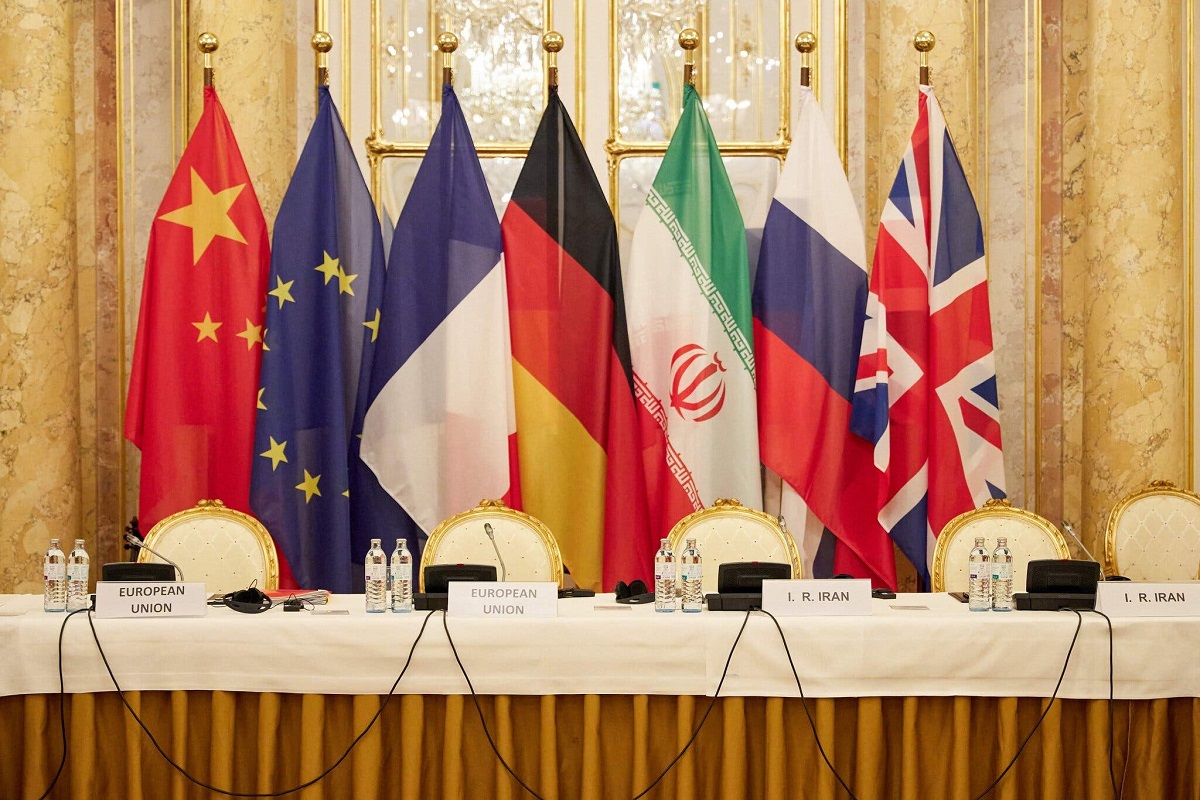The three countries — the European partners to the JCPOA — are the only parties capable of initiating the mechanism in the 2015 Iran nuclear deal canceling the removal of U.N. sanctions on Iran. The parties to the deal rejected a US attempt to do so previously given the American withdrawal in 2018.
In the letter, obtained by Jewish Insider, the lawmakers specifically highlight the urgency of snapback in light of the upcoming expiration of the U.N. embargo on Iran’s missile and drone programs later this year.
“It is clear that Iran has failed to live up to its nonproliferation commitments, and time is running out to curb their nuclear ambitions,” the letter reads.
“For nearly four years, Iran has ceased implementing important commitments under the JCPOA, continues to expand its nuclear program, and has rejected all diplomatic offers. As our great nations have seen countless times, appeasing belligerent nations does not lead to peace, it only feeds even greater threats to international peace and security,” they added.
The lawmakers also argue that the current sunset deadlines for sanctions are not relevant to the current situation on the ground in Iran.
“Iran’s JCPOA violations — operating advanced centrifuges and acquiring new expertise in the enrichment of near weapons-grade uranium — are not reversible,” it continues.
“Even if a new agreement could be negotiated, allowing Iran to maintain the sunset provisions of the old deal would render any deal immediately worthless,” they said.
Reps. Claudia Tenney (R-NY) and Josh Gottheimer (D-NJ) led the letter, joined by 32 Republicans and Rep. Jared Moskowitz (D-FL). Both Tenney and Gottheimer, in statements to JI, emphasized the threat that Iran’s nuclear program poses to Israel and the region more broadly.
“It is indisputable that Iran is in violation of the JCPOA, which is why our European allies must initiate snapback now to reimpose previously lifted sanctions,” Tenney stated, noting, “Snapback will send a clear message to Iran that its nuclear extortion has severe consequences and that the expansion of its nuclear program will not be tolerated. The time for bold and decisive action is now.”
Gottheimer emphasized that lifting sanctions on Iran would further fuel its “malign activities globally”.
“We cannot forget where the money ends up when sanctions are lifted on Iran — the world’s leading state sponsor of terror,” he said, adding, “The Iranian regime actively finances a robust worldwide network of terrorist proxies in Europe, Latin America, Africa, and the United States. Iran has even armed Russia with scores of long-range suicide drones. Time is running out to curb Iran’s nuclear and other nefarious ambitions, and the E3 must consider initiating snapback sanctions.”
In early May, Iranian Foreign Ministry Spokesman Nasser Kanaani reiterated Tehran’s readiness to conclude the nuclear negotiations with the world powers, but warned that any move by the European signatories to the 2015 nuclear deal to trigger the so-called snapback mechanism will be met by Tehran’s reaction.
“The course of diplomacy is still open and the exchange of messages is in still in progress. I would emphasize that Iran is prepared for the conclusion of negotiations while maintaining its red lines,” the spokesperson added, but warned the European parties that the opportunity for the negotiations will not be available forever.
On the reports about the measures taken by certain European parties to activate the snapback mechanism, the senior official cautioned the EU parties that any miscalculation or illogical action will draw a reaction from Iran, which has already given them a clear message.
“We made efforts to form the relations (with the EU) on the basis of mutual respect, but the European side unfortunately considered specific subjects and sadly acted as an impeding factor. As regards the JCPOA, the European parties, notably the JCPOA partners, unfortunately followed the US’ wrong policy and linked the bilateral relations (with Iran) to the complicated situation resulting from the wrong US policy and obstructed the economic relations,” he added.
Iran showed to the world the peaceful nature of its nuclear program by signing the Joint Comprehensive Plan of Action (JCPOA) with six world states — namely the US, Germany, France, Britain, Russia and China. But, Washington’s unilateral withdrawal in May 2018 and its subsequent re-imposition of sanctions against Tehran left the future of the deal in limbo.
Negotiations between the parties to the landmark agreement kicked off in Vienna in April 2021, with the intention of bringing the US back into the deal and putting an end to its “maximum pressure” campaign against Iran.
The discussions, however, have been at a standstill since August 2022 due to Washington’s insistence on not lifting all of the anti-Iran sanctions and offering the necessary guarantees that it will not exit the agreement again.
